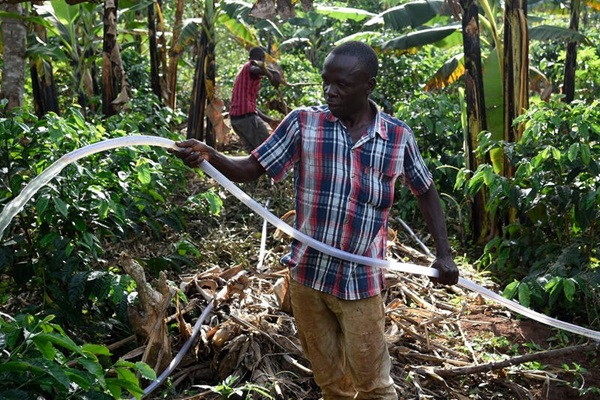
Micro, small and medium-scale forest enterprises
Globally, many people living in rural areas forests depend on forests as direct sources of food, fuel, building materials, fodder and medicines. The products derived from the forests can also provide cash income.
FAO assists communities and individuals in developing income-generating tree and forest product enterprises. Having an income-generating forest enterprise can nurture a local forestry culture that contributes to sustainably managing and protecting the forests the enterprise is based upon.
FAO's work
Enterprise development
- FAO has developed a methodology and training package called Market Analysis and Development (MA&D) to help prospective entrepreneurs to identify, refine and realize their business goals. It is available in English, French, and Spanish, and has been used in many projects and contexts around the world. The MA&D package is periodically reviewed and updated.
- FAO also facilitate training of trainers for enhancing small-scale forest enterprises based on MA&D processes.
Monitor, review and showcase the importance of small-scale enterprises
- Develop knowledge and communications products to enhance understanding and knowledge about micro, small and medium-size forest enterprises.
- Support the establishment and/or reinforcement of forest producer organizations for micro, small and medium-size forest enterprises (MSMFE).
- Contribute to better functioning business development and financial services for MSMFEs.
- Coordinate with the Forest and Farm Facility, other Forestry Division projects, decentralized offices and other relevant divisions in FAO, promoting the livelihoods and income-generating aspects of forest restoration, UNREDD and FLEGT.
Publications
News

How agroforestry can help mountain coffee producers build resilience
03/07/2024
A new publication from the Food and Agriculture Organization of the United Nations sets out how coffee produced through agroforestry can improve resilience and ensure livelihoods in the face of climate change.

FAO and EU launch 15 million euro project to boost sustainability of Uganda’s forestry sector
10/04/2024
FAO has launched a 15 million euro ($16.29 million) project funded by the European Union to help Uganda’s forestry sector contribute more sustainably to the economy and the environment.

International Conference on Agrobiodiversity begins in Nepal
08/04/2024
Forest and farm producer organizations representing the world’s smallholder farmers, Indigenous Peoples and local communities are gathering in Pokhara, Nepal, this week to explore how to best manage the world’s agrobiodiversity.








